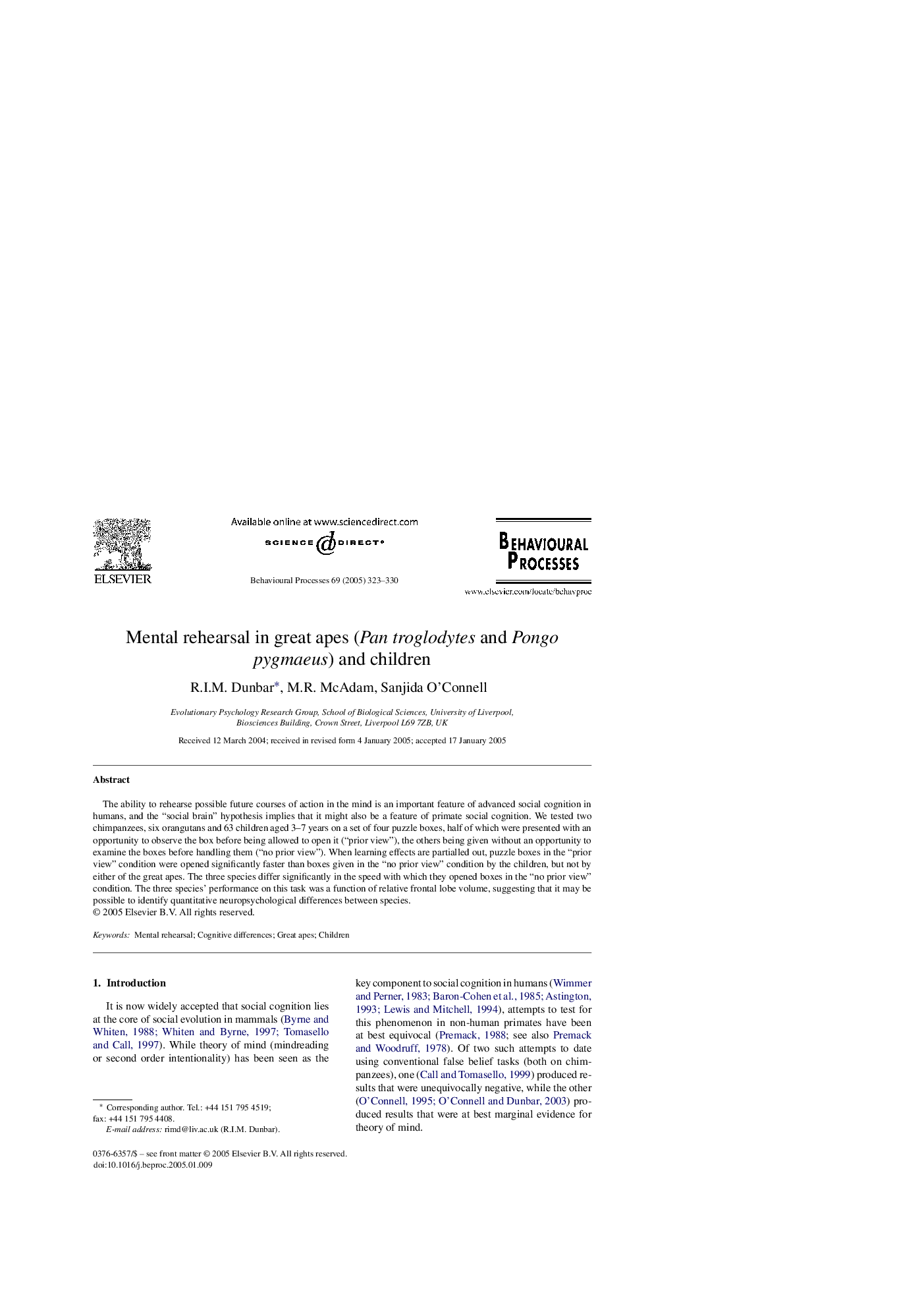| Article ID | Journal | Published Year | Pages | File Type |
|---|---|---|---|---|
| 8977431 | Behavioural Processes | 2005 | 8 Pages |
Abstract
The ability to rehearse possible future courses of action in the mind is an important feature of advanced social cognition in humans, and the “social brain” hypothesis implies that it might also be a feature of primate social cognition. We tested two chimpanzees, six orangutans and 63 children aged 3-7 years on a set of four puzzle boxes, half of which were presented with an opportunity to observe the box before being allowed to open it (“prior view”), the others being given without an opportunity to examine the boxes before handling them (“no prior view”). When learning effects are partialled out, puzzle boxes in the “prior view” condition were opened significantly faster than boxes given in the “no prior view” condition by the children, but not by either of the great apes. The three species differ significantly in the speed with which they opened boxes in the “no prior view” condition. The three species' performance on this task was a function of relative frontal lobe volume, suggesting that it may be possible to identify quantitative neuropsychological differences between species.
Keywords
Related Topics
Life Sciences
Agricultural and Biological Sciences
Animal Science and Zoology
Authors
R.I.M. Dunbar, M.R. McAdam, Sanjida O'Connell,
